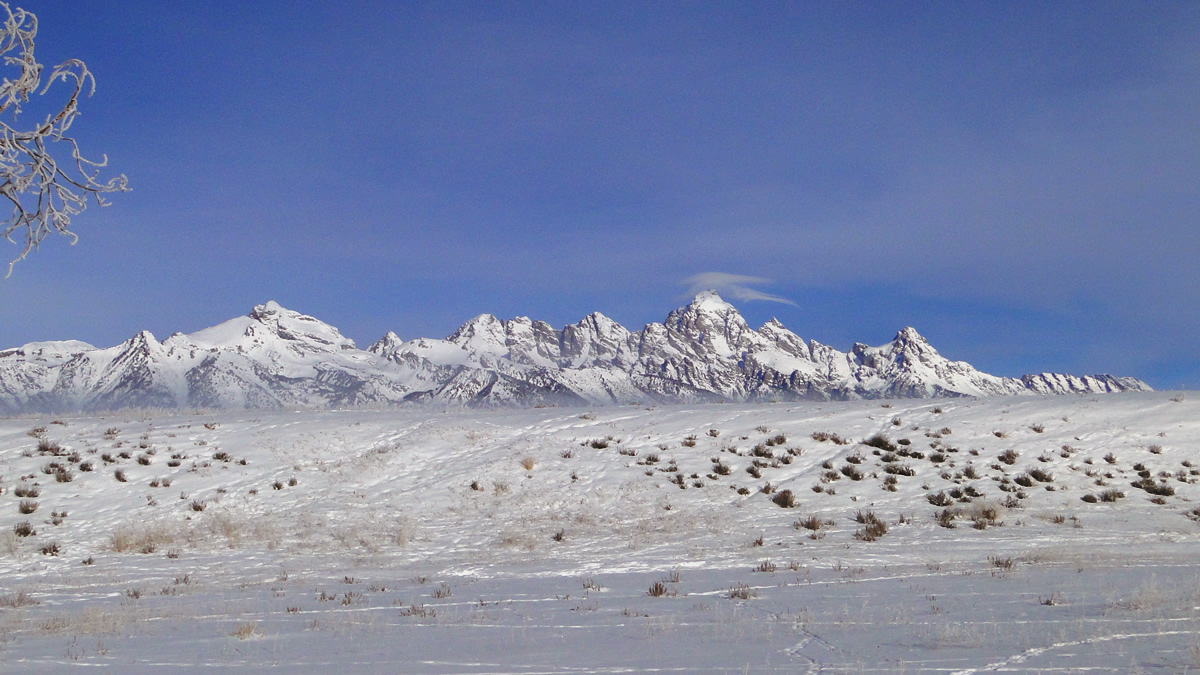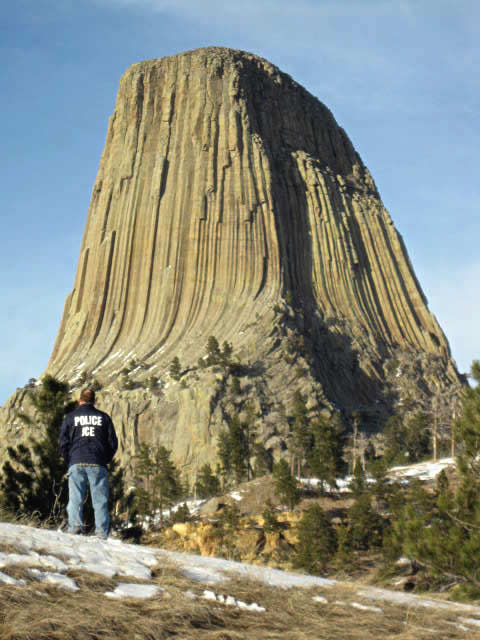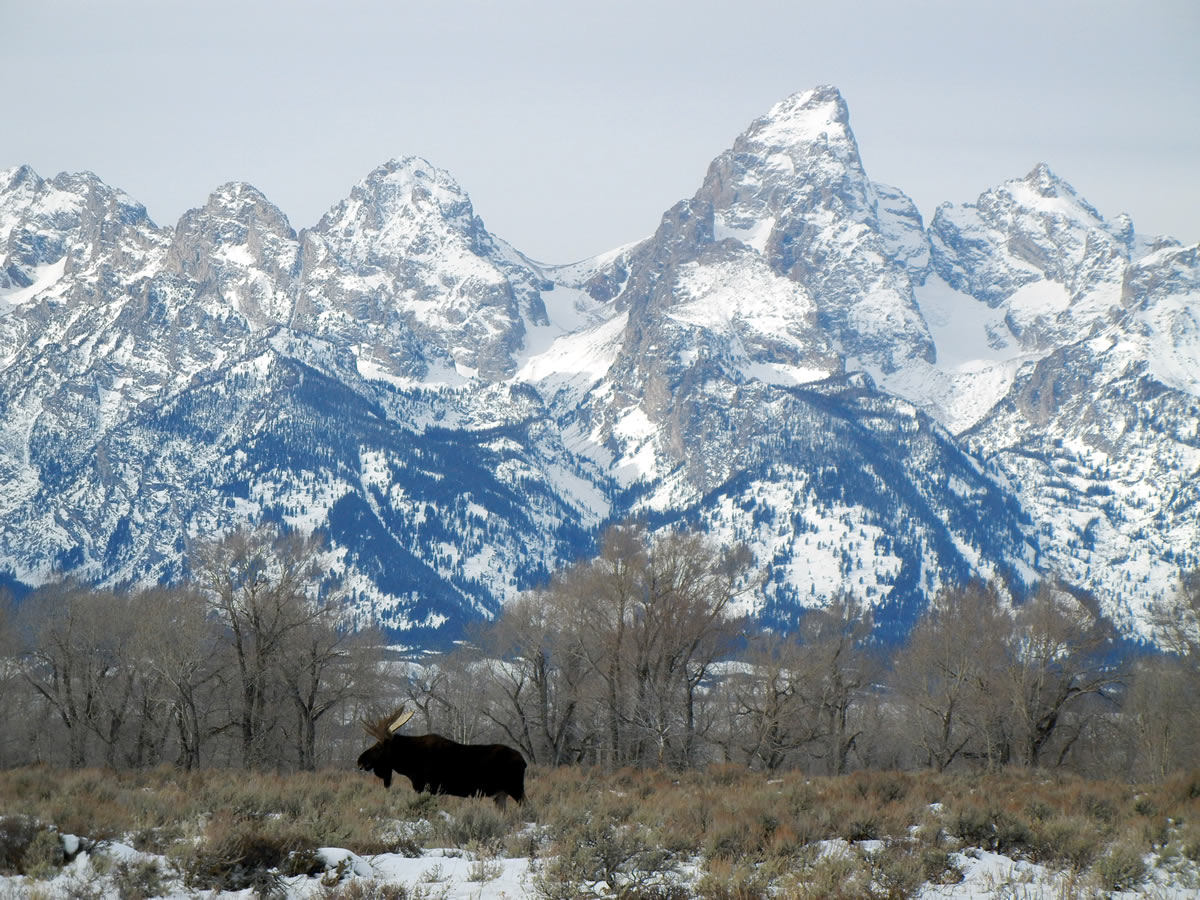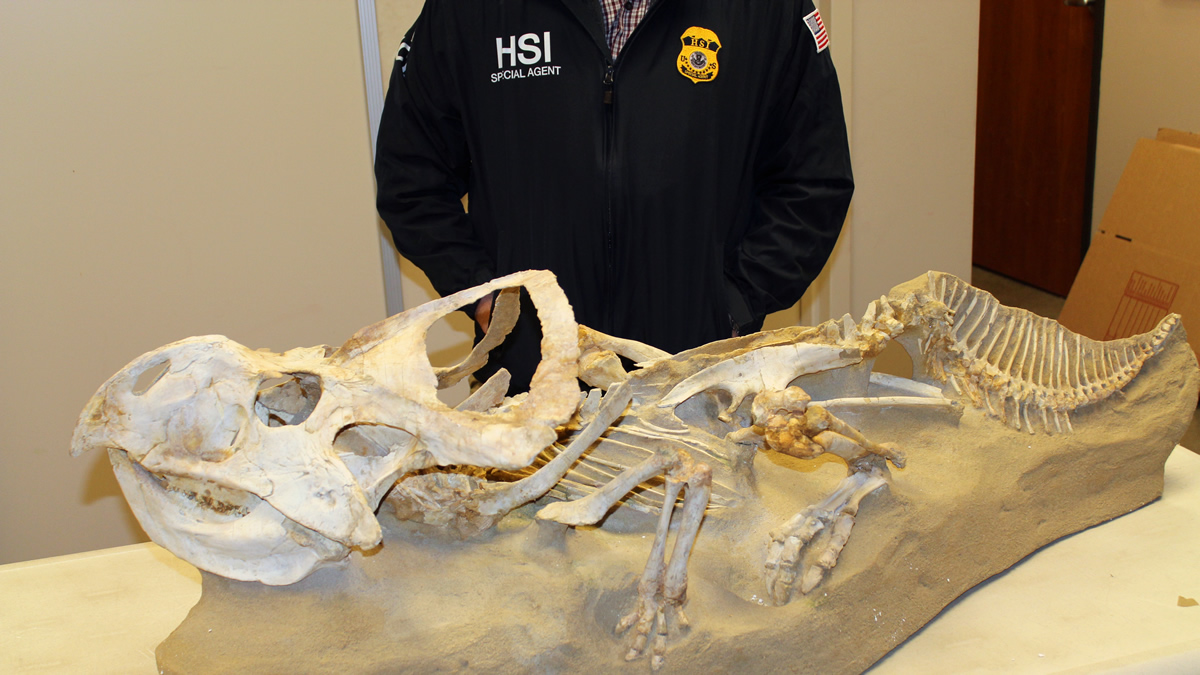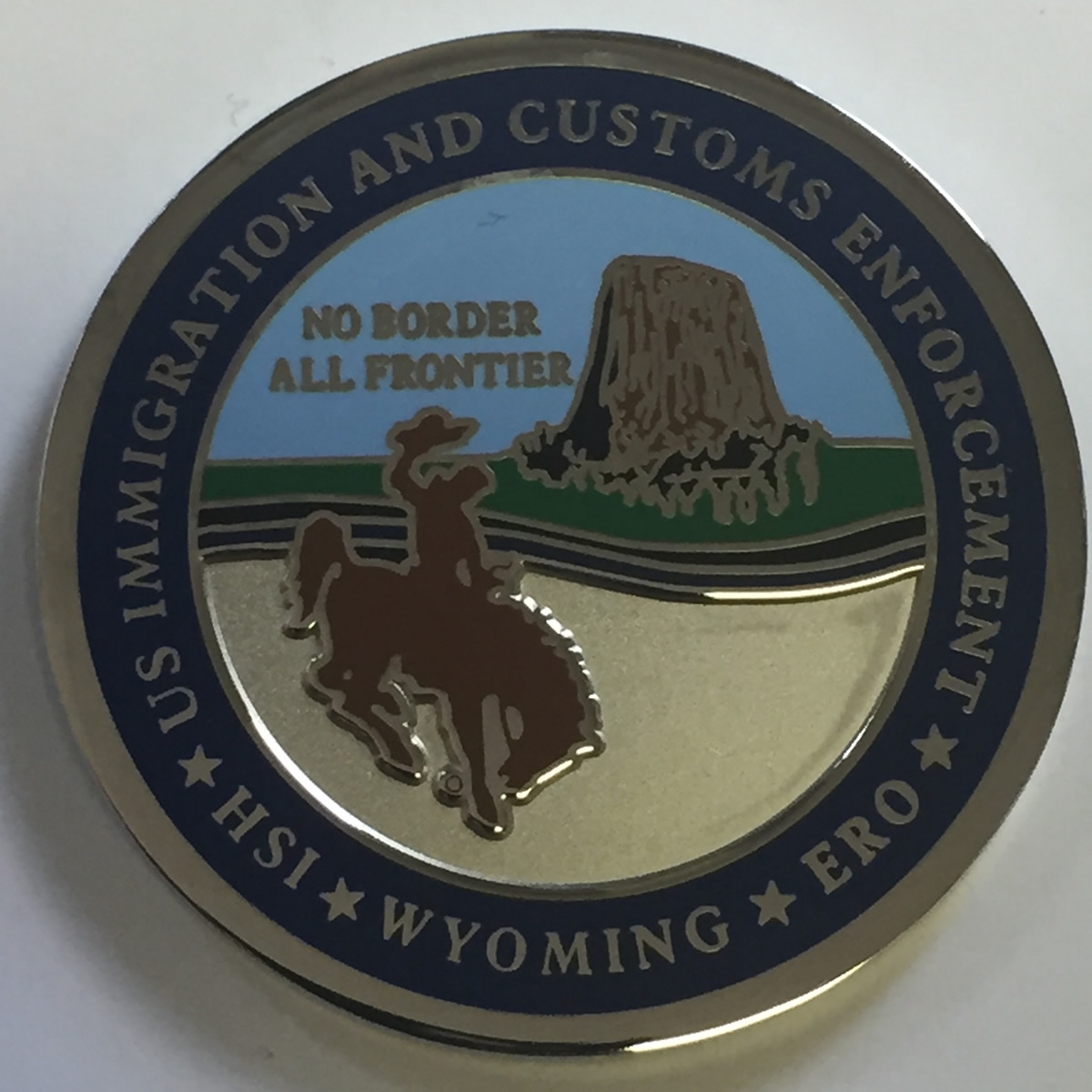Archived Content
In an effort to keep ICE.gov current, the archive contains content from a previous administration or is otherwise outdated. This information is archived and not reflective of current practice.
ICE HSI Cheyenne a massive area to cover
No borders. All frontier.
That’s the state of Wyoming in the nutshell. At least according to the motto of the U.S. Immigration and Customs Enforcement’s (ICE) Homeland Security Investigations (HSI) special agents who call it home. With the closest border more than six hours away in Montana, those who live in the Equality State embrace the rural atmosphere the massive land area provides. For law enforcement personnel, however, the area of responsibility (AOR) is an expansive part of the country that must be covered.
Located in the southeastern part of the state sits HSI’s Resident Agent in Charge (RAC) Cheyenne office. HSI Cheyenne investigates a wide range of crimes including cybercrime, child pornography, money laundering and cultural property. Additionally, special agents are routinely on high alert for drug trafficking as Wyoming is a “pass through” state for criminals who make their way from source states to end-user states such as California or Midwestern states such as Minnesota.
At HSI Cheyenne, and two hours away at HSI’s Resident Agent (RA) Casper office, the only other field office in the state, it’s all about logistics. Cheyenne covers the southern half of the state and it takes approximately 4-5 hours to get to the western most part of the state. By comparison, Casper is more centrally located, but for both, every town is 2-4 hours away.
The day-to-day operations require HSI Cheyenne personnel to cover a more than a 200,000 square mile AOR. In either Cheyenne or Casper, special agents have to be prepared to drop what they’re doing and get behind the wheel and drive long distances to investigate cases.
According to Hasskamp, the ability to service many communities in the state is often affected by that distance. For example, long-term investigations that require surveillance can be impacted by the time it takes to travel. If special agents are based in Cheyenne and a case is in Rock Springs, approximately 300 miles away, most of the day is spent driving.
Because of that, like at most smaller field offices, it’s impossible to get the work done safely, efficiently, and effectively in Wyoming without essential relationships and rapport with federal, state and local partners.
“If you’ve got one person detailed out and one person on annual leave, you may be the only person in the office and you come to rely on having access to those people to help out,” Hasskamp said. “We help them out when they need it, whether it’s in our wheelhouse or not, and we get that help in return.”
Nearly all the investigations that take place in Wyoming are self-developed, with periodic assistance from the HSI Tip Line. While the amount of manpower creates its share of challenges, for Hasskamp, it provides a more manageable environment, which is a selling point for potential agents interested in coming to Wyoming.
The opportunity to work in a smaller office on various case types can certainly be appealing, but HSI Cheyenne personnel also have to deal with the severe Wyoming winters. The snow and wind creates dangerous driving hazards that result in occasional closures of major interstates in the area.
“We can get around the closures if necessary, but most likely we’re not going to drive in those conditions,” Hasskamp said. “When the roads are bad, we have to effectively plan our days and weeks, because as soon as the weather breaks, there may be 2-3 things to do now, so you have to manage your time.”
Cheyenne has a population of approximately 64,000 people. Everything is rural in nature there as well as in Casper. For an outdoors person who’s into hunting, fishing and skiing, it’s the perfect place. But Hasskamp will be the first to admit that it lacks the cultural aspects of a big city.
Nonetheless, the small community creates an environment for teamwork within the HSI Cheyenne office and essential collaboration with its partners. No matter the size of the city, it’s an effective formula for carrying out ICE’s mission.


